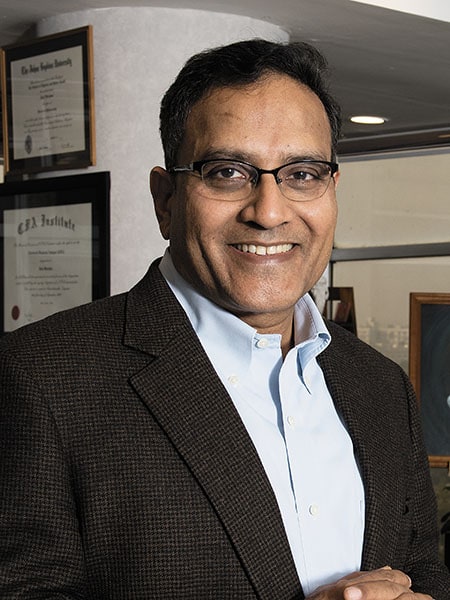The private sector will never be happy: Ayushman Bharat's CEO
Dr Indu Bhushan, CEO, Ayushman Bharat, on why private players need to change their mentality, and making the scheme foolproof


 Dr. Indu Bhushan
Dr. Indu Bhushan
Image: Amit Verma[br]Also read: Is PM Modi"s Ayushman Bharat too ambitious to succeed?
Q. Studies have shown that the Rashtriya Swasthya Bima Yojana (RSBY) didn’t reduce patients’ out-of-pocket expenditure (OOPE). How will Ayushman Bharat overcome that?
RSBY was a narrow scheme. It did not cover catastrophic illnesses that push people into poverty. Primary health care was also not covered under it. So the impact of OOPE may not have been noticed. But one also has to see that OOPE has other correlates, the largest being incomes. As your income increases, OOPE will also increase. In RSBY, we saw that OOPE increased because previously people were not going to hospitals. Once the patient went to hospital, he got a lot of treatment for free, but he had to pay for some, including transport, food, loss of wages etc. Usually with OOPE, it’s like an inverted-U. When no health care services are available, OOPE is zero. But as health systems improve, OOPE first increases and then it comes down. So one has to see where you are catching the curve in terms of impact.
Q. The package rates are a pain point for private players. How are you approaching the issue?
These prices are quite reasonable. They are based on rigorous studies and a wide range of consultations, including with the private sector. The private sector will never be happy because they want to take more and more. We are providing them with volume, and we keep saying we want the industry to move to a high volume and low margin approach, rather than low volume and high margins that they have right now. So it’s a give and take… they have to change their mentality and whenever we find some of our prices are not right, we will keep modifying them. We’ve done the first round of modifications and believe they are fine. We also have some empirical evidence to support us because we have done close to 67 lakh treatments [as of early December 2019] and out of this, more than 50 percent are done by private players. If these rates were so unviable, how do you explain close to 40 lakh treatments by the private sector? There is some disconnect somewhere.
Q. Providing a continuum of care between the primary ‘health and wellness centres’ and hospitals providing secondary and tertiary care is critical for the success of Ayushman Bharat.
Ayushman Bharat provides support for secondary and tertiary care, but we have to have a close link with the primary health care pillar under which 1.5 lakh health and wellness centres are being developed. A lot of the initial screening for diseases, including non-communicable ones, will take place there and those patients who are found to be positive will be sent for treatment. The treatment should be followed up at the centres. The whole circle of screening, ensuring preventive care, linking it with the treatment and then providing curative and rehabilitative support can be done at the community level by the primary health and wellness centres. That linkage is still missing and we need to work on that.
Q. There have been instances of empanelled hospitals gaming the system. How do you prevent fraud and abuse?
We want to ensure that our checks and balances are so strong that no fraud takes place. And if it does, we should be able to detect it quickly and take action. We have de-empanelled a number of hospitals. We are in the process of finalising a vendor who can help us with big data analysis and artificial intelligence to spot potential fraud cases. We are also in the process of engaging medical audit agencies to carry out audits based on suspicious as well as random cases.
First Published: Jan 23, 2020, 10:05
Subscribe Now